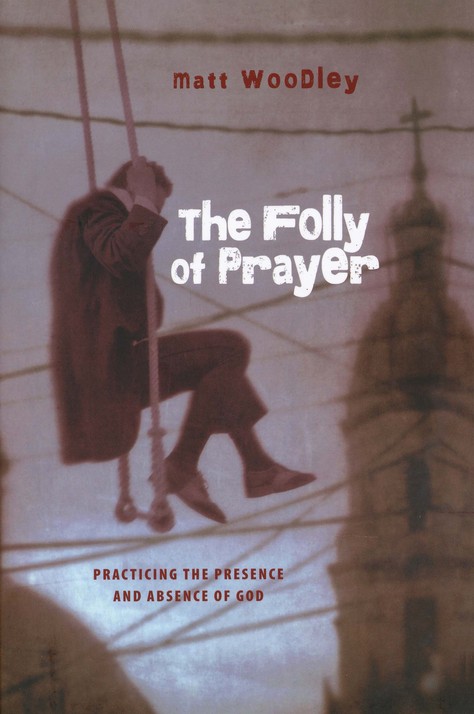11 Paths to Prayer

Editor's Note: The following is a report on the practical applications of Matt Woodley's recent book, The Folly of Prayer: Practicing the Presence and Absence of God, (IVP Books, 2009).
Sensing God's presence with you when you pray is exhilarating, but feeling like you're getting no response can be exasperating. If you want to connect with God but don't seem to be making contact through the way you usually pray, it could be time for to try a new approach. There are many ways to pray - many paths of communication that can lead you closer to God.
Here are some different paths you can take to prayer:
"Guttural groaning": When you feel pain or doubt so deeply that you can't express verbally, you can simply groan in your spirit and God will hear. The Holy Spirit within you will intercede to God the Father for you to express what you can't put into words. Guttural groaning will open your heart to God's comfort, hope, and compassion.
"Skin, trees, blood, bread, and wine": When you pray using your physical senses (such as seeing, hearing, smelling, touching, or tasting), you can deepen your connection to God. Start by celebrating Communion for a powerful encounter with God. Then try other sacramental approaches to prayer, like praying with other people whose faces you can see, touching someone you're praying for, praying outside in nature, moving your body when you pray (kneeling, raising your hands, dancing, walking, making the sign of the cross, or anything else God may lead you to do).
"Desperation": When you cry out to God from the depths of your helplessness, God hears you. Don't let either pride or insecurity keep you from praying when you feel desperate. Remember that Jesus has given you the freedom and confidence you need to turn to God in the midst of desperate situations. Open yourself up fully to receive His help. Expect God to reach out to you. Let the desperation you experience motivate you to pursue God more and develop deeper compassion for other people in need.
"Mystery": When your prayers go unanswered and you don't know why, don't hesitate to ask God questions and express your agony to Him. Choose to trust God's promise that He will do what's best when you pray. Realize that He may be using unanswered prayers to change you for the better as you go through difficult circumstances. Understand that sometimes God will choose to give you something more valuable than answers to your prayers: Himself. Get to know the Giver rather than just the gifts. Make your ultimate goal in prayer to spend time with God instead of trying to get something from Him. Ask God to help you surrender your will to His will and trust that He will work out every situation according to what's best when you invite Him to do so.
"Absence": When God feels far away, recognize that as a normal part of your spiritual journey, but remember that God hasn't abandoned you. He has promised always to be with you, but when you don't sense His presence, you're experiencing it in a whole new way. During the time that you feel separated from God, He can wean you from your attachment to immature thoughts and feelings about Him and help you grow to eventually see Him in clearer ways, experience His love more deeply, and let it flow through you to others.
"An argument with God": When you argue with God through prayer, you can actually grow closer to Him by engaging with Him in real, raw, and honest ways. Be humble yet confident about confronting God about an issue in your life. God would rather have you argue with Him than not care enough to confront Him about what's troubling you. Feel free to wrestle with God as part of the process of passionately pursuing Him. Don't be afraid to tell God: "I love you, but I'm mad and confused."
"A long, slow journey": When the answers to your prayers take a long time to come, you can learn to adjust your lifestyle to God's timing. Remember that prayer isn't primarily about getting something from God right when you want it; instead, it's about being with God and allowing Him to change you in the process. Waiting on God helps you learn to trust God's good plans for your life, even when you don't understand or agree with His timing. Ask God to give you the strength to be patient while you must wait.
"A dangerous activity": When God responds to your prayers by calling you to grow as a person in uncomfortable ways or make difficult sacrifices to help others, praying can seem like a dangerous activity. But remember that God wants to bless you - just on His terms, not yours. While you may pray to be relieved of your cares, God wants to propel you into spiritual growth and service. Invite Him to do the work He wants to do in your soul and through your life. You'll ultimately benefit in powerful ways from it.
"Paying attention": When you meditate on Bible passages, you can listen to the themes of your own life as you notice the connections. Ask yourself: "How is God's Word intersecting in my life?", "Am I meditating on a portion of God's Word that is actually coming to life right now?", and "How is Jesus leading me to follow Him through these circumstances?". As you pay closer attention to God's work in your life, you'll start to notice it at all times and in all situations.
"Feeling God's heartbeat": When you're feeling sad or lonely, imagine yourself hugging God so closely that you can feel His heartbeat. Rest in His presence, enjoying His company without any agenda to pursue with Him. Contemplate the powerful reality that His Spirit lives in you. Thank God for His great love for you. Set aside time in your busy schedule to spend with God in silence regularly. You'll receive more peace from Him that will carry over into all of your activities.
"Love": When you pursue intercessory prayer, you become immersed in God's ongoing community of love. Praying for others and allowing them to pray for you invites God to pour His love into all of your lives, drawing you all closer to Him in the process.

Matt Woodley is the senior pastor of Three Village Church, Long Island, New York. He is the coauthor, with his wife Julie and H. Norman Wright, of Surviving the Storms of Life and the author of Holy Fools. He has also written a number of articles published in Discipleship Journal and Leadership Journal as well as The Mars Hill Review.
Original publication date: February 3, 2010
Originally published March 18, 2015.




